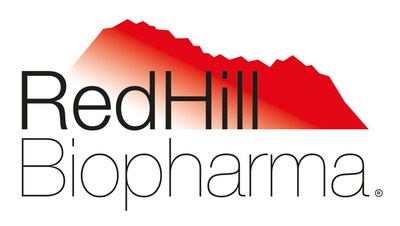Radioprotective Activity of RedHill's Opaganib for GI-ARS Confirmed in New RNCP/NIAID Study - Discussions Ongoing with U.S. Government on Advanced Development
Heightened geopolitical tensions and Homeland Security concerns call for the development of potential therapies that can be quickly and easily mobilized in the event of a mass casualty nuclear or radiological incident
There are currently no known approved therapies for gastrointestinal acute radiation syndrome (GI-ARS)
Positive results from new in vivo studies of opaganib as a treatment for GI-ARS, undertaken as part of the U.S. government's Radiation and Nuclear Countermeasures Program (RNCP) product pipeline development contract, further confirm opaganib's protective activity
Discussions now ongoing with the National Institutes of Health's (NIH) National Institute of Allergy and Infectious Diseases (NIAID), which leads the RNCP, regarding plans for the next phase of development along the U.S. Food and Drug Administration's (FDA) Animal Rule pathway to approval
TEL AVIV, Israel and RALEIGH, N.C., Dec. 10, 2024 /PRNewswire/ -- RedHill Biopharma Ltd. (Nasdaq: RDHL) ("RedHill" or the "Company"), a specialty biopharmaceutical company, today announced positive results from new in vivo studies of opaganib[1] as a treatment for gastrointestinal acute radiation syndrome (GI-ARS), undertaken as part of the U.S. government's Radiation and Nuclear Countermeasures Program (RNCP) product pipeline development contract awarded to opaganib, that further confirm opaganib's protective activity in models of GI-ARS.

The Company, together with the National Institutes of Allergy and Infectious Diseases (NIAID), which leads the U.S. government's RNCP, now plan to discuss the next phase of opaganib's U.S. government-funded development, along the U.S. Food and Drug Administration's (FDA) Animal Rule pathway, as a medical countermeasure against GI-ARS. The FDA's Animal Rule pathway to approval allows for pivotal animal model efficacy studies to support FDA approval of new drugs when human clinical trials are not ethical or feasible.
"There are currently no known approved therapies for GI-ARS. Growing geopolitical tensions and Homeland Security concerns call for development of new potential therapies that can be quickly and easily deployed in the event of a mass casualty nuclear or radiological incident," said Gilead Raday, RedHill's Chief Operating Officer and Head of Research and Development. "Opaganib, as an oral, small molecule pill that is highly stable with a more than five-year shelf-life, is easy to administer and distribute, supporting, if approved, potential central stockpiling by governments for use when needed."
With multiple U.S. government collaborations for chemical and medical countermeasures and pandemic preparedness, opaganib is a novel, host-directed, potentially broad acting, orally administered small molecule, clinical-stage drug with demonstrated safety & efficacy profiles, being developed for various oncology, viral infections, inflammatory diseases and chemical and nuclear/radioprotection indications.
About Acute Radiation Syndrome (ARS)
ARS, sometimes known as radiation toxicity or radiation sickness, is generally rare; however, public health emergencies, such as a nuclear power plant accident or detonation of a nuclear device, could affect large numbers of people. ARS is an acute illness caused by irradiation of the body by a high dose of penetrating radiation in a short period of time. Much of the damage caused by ARS is caused by inflammation secondary to the direct effects of ionizing radiation itself.
Current treatments for ARS are supportive care, including blood transfusions, antibiotics, etc., as well as the availability of four approved products to mitigate hematologic-ARS (three growth factors to address neutropenia and one to mitigate thrombocytopenia). However, other radiation-induced clinical manifestations that have been observed in natural history studies, and remain unaddressed with the current treatments, include GI-ARS, cutaneous injury, and late effects in the lung, heart, and kidneys. Opaganib, an SPHK2 inhibitor, may offer a new therapeutic approach to mitigate GI-ARS. It has also been reported in the literature that inhibition of SPHK2 promotes the viability and robustness of hematopoietic stem cells, even in the face of radiation damage, supporting increased survival.
About Opaganib (ABC294640)
Opaganib, a proprietary investigational host-directed and potentially broad-acting drug, is a first-in-class, orally administered sphingosine kinase-2 (SPHK2) selective inhibitor with anticancer, anti-inflammatory and antiviral activity, targeting multiple potential indications, including several cancers, diabetes and obesity-related disorders, gastrointestinal acute radiation syndrome (GI-ARS), chemical exposure indications, COVID-19, Ebola and other viruses as part of pandemic preparedness.
Opaganib's host-directed action is thought to work through the inhibition of multiple pathways, the induction of autophagy and apoptosis, and disruption of viral replication, through simultaneous inhibition of three sphingolipid-metabolizing enzymes in human cells (SPHK2, DES1 and GCS).
Several U.S. government countermeasures and pandemic preparedness programs have selected opaganib for evaluation for multiple indications, including Acute Radiation Syndrome (ARS), Ebola virus disease and others. Funding bodies include the Radiation and Nuclear Countermeasures Program (RNCP), led by the National Institute of Allergy and Infectious Diseases (NIAID), part of the U.S. government Department of Health & Human Services' National Institutes of Health and the Administration for Strategic Preparedness and Response's (ASPR) Center for Biomedical Advanced Research and Development Authority (BARDA).
Opaganib has demonstrated antiviral activity against SARS-CoV-2, multiple variants, and several other viruses, such as Influenza A and Ebola. Opaganib delivered a statistically significant increase in survival time when given at 150 mg/kg twice a day (BID) in a United States Army Medical Research Institute of Infectious Diseases (USAMRIID) in vivo Ebola virus study, making it the first host-directed molecule to show activity in Ebola virus disease. Opaganib also recently demonstrated a distinct synergistic effect when combined individually with remdesivir (Veklury®, Gilead Sciences Inc.), significantly improving potency while maintaining cell viability, in a U.S. Army-funded and conducted in vitro Ebola virus study.
Being host-targeted, and based on data accumulated to date, opaganib is expected to maintain effect against emerging viral variants. In prespecified analyses of Phase 2/3 clinical data in hospitalized patients with moderate to severe COVID-19, oral opaganib demonstrated improved viral RNA clearance, faster time to recovery and significant mortality reduction in key patient subpopulations versus placebo on top of standard of care. Opaganib has demonstrated its safety and tolerability profile in more than 470 people in multiple clinical studies and expanded access use. Data from the opaganib global Phase 2/3 study was published in Microorganisms.
Opaganib has received several orphan-drug designations from the FDA in oncology and other diseases and has undergone studies in advanced cholangiocarcinoma (Phase 2a) and prostate cancer. Opaganib also has a Phase 1 chemoradiotherapy study protocol ready for FDA-IND submission.
Opaganib has also shown positive preclinical results in renal fibrosis, and has the potential to target multiple oncology, radioprotection, viral, inflammatory, and gastrointestinal indications.
About RedHill Biopharma
RedHill Biopharma Ltd. (Nasdaq: RDHL) is a specialty biopharmaceutical company primarily focused on U.S commercialization and development of drugs for gastrointestinal diseases, infectious diseases and oncology. RedHill promotes the gastrointestinal drug Talicia®, for the treatment of Helicobacter pylori (H. pylori) infection in adults[2]. RedHill's key clinical late-stage development programs include: (i) opaganib (ABC294640), a first-in-class, orally administered sphingosine kinase-2 (SPHK2) selective inhibitor with anticancer, anti-inflammatory and antiviral activity, targeting multiple indications with U.S. government and academic collaborations for development for radiation and chemical exposure indications such as Acute Radiation Syndrome (ARS), a Phase 2/3 program for hospitalized COVID-19, and a Phase 2 program in oncology; (ii) RHB-107 (upamostat), an oral broad-acting, host-directed, serine protease inhibitor with potential for pandemic preparedness is in late-stage development as a treatment for non-hospitalized symptomatic COVID-19, with non-dilutive external funding covering the entirety of the RHB-107 arm of the 300-patient Phase 2 adaptive platform trial, and is also targeting multiple other cancer and inflammatory gastrointestinal diseases; (iii) RHB-102, with potential UK submission for chemotherapy and radiotherapy induced nausea and vomiting, positive results from a Phase 3 study for acute gastroenteritis and gastritis and positive results from a Phase 2 study for IBS-D; (iv) RHB-104, with positive results from a first Phase 3 study for Crohn's disease; and (v) RHB-204, a Phase 3-stage program for pulmonary nontuberculous mycobacteria (NTM) disease.
More information about the Company is available at www.redhillbio.com / X.com/RedHillBio.
Forward-Looking Statements
This press release contains "forward-looking statements" within the meaning of the Private Securities Litigation Reform Act of 1995 and may discuss investment opportunities, stock analysis, financial performance, investor relations, and market trends. Such statements may be preceded by the words "intends," "may," "will," "plans," "expects," "anticipates," "projects," "predicts," "estimates," "aims," "believes," "hopes," "potential" or similar words and include, among others, statements regarding the potential effects of opaganib in the treatment of GI-ARS. Forward-looking statements are based on certain assumptions and are subject to various known and unknown risks and uncertainties, many of which are beyond the Company's control and cannot be predicted or quantified, and consequently, actual results may differ materially from those expressed or implied by such forward-looking statements. Such risks and uncertainties include, without limitation: market and other conditions; the Company's ability to maintain compliance with the Nasdaq Capital Market's listing requirements; the risk that the addition of new revenue generating products or out-licensing transactions will not occur; the risk that acceptance onto the RNCP Product Development Pipeline will not guarantee ongoing development or that any such development will not be completed or successful; the risk that the FDA does not agree with the Company's proposed development plans for opaganib for any indication; the risk that observations from preclinical studies are not indicative or predictive of results in clinical trials; the risk that the FDA pre-study requirements will not be met and/or that the Phase 3 study of RHB-107 in COVID-19 outpatients will not be approved to commence or if approved, will not be completed or, should that be the case, that we will not be successful in obtaining alternative non-dilutive development funding for RHB-107; the risk that RHB-107's late-stage development for non-hospitalized COVID-19 will not benefit from the resources redirected from the terminated RHB-204 Phase 3 study, and that the Phase 2/3 COVID-19 study for RHB-107 may not be successful and, even if successful, such studies and results may not be sufficient for regulatory applications, including emergency use or marketing applications, and that additional COVID-19 studies for opaganib and RHB-107 are likely to be required; the risk that the Company will not successfully commercialize its products; as well as risks and uncertainties associated with (i) the initiation, timing, progress and results of the Company's research, manufacturing, pre-clinical studies, clinical trials, and other therapeutic candidate development efforts, and the timing of the commercial launch of its commercial products and ones it may acquire or develop in the future; (ii) the Company's ability to advance its therapeutic candidates into clinical trials or to successfully complete its pre-clinical studies or clinical trials or the development of a commercial companion diagnostic for the detection of MAP; (iii) the extent and number and type of additional studies that the Company may be required to conduct and the Company's receipt of regulatory approvals for its therapeutic candidates, and the timing of other regulatory filings, approvals and feedback; (iv) the manufacturing, clinical development, commercialization, and market acceptance of the Company's therapeutic candidates and Talicia®; (v) the Company's ability to successfully commercialize and promote Talicia® and Aemcolo®; (vi) the Company's ability to establish and maintain corporate collaborations; (vii) the Company's ability to acquire products approved for marketing in the U.S. that achieve commercial success and build its own marketing and commercialization capabilities; (viii) the interpretation of the properties and characteristics of the Company's therapeutic candidates and the results obtained with its therapeutic candidates in research, pre-clinical studies or clinical trials; (ix) the implementation of the Company's business model, strategic plans for its business and therapeutic candidates; (x) the scope of protection the Company is able to establish and maintain for intellectual property rights covering its therapeutic candidates and its ability to operate its business without infringing the intellectual property rights of others; (xi) parties from whom the Company licenses its intellectual property defaulting in their obligations to the Company; (xii) estimates of the Company's expenses, future revenues, capital requirements and needs for additional financing; (xiii) the effect of patients suffering adverse experiences using investigative drugs under the Company's Expanded Access Program; (xiv) competition from other companies and technologies within the Company's industry; and (xv) the hiring and employment commencement date of executive managers. More detailed information about the Company and the risk factors that may affect the realization of forward-looking statements is set forth in the Company's filings with the Securities and Exchange Commission (SEC), including the Company's Annual Report on Form 20-F filed with the SEC on April 8, 2024. All forward-looking statements included in this press release are made only as of the date of this press release. The Company assumes no obligation to update any written or oral forward-looking statement, whether as a result of new information, future events or otherwise unless required by law.
Disclaimer: The views and opinions of authors expressed herein do not necessarily state or reflect those of the U.S. government and shall not be used for advertising or product endorsement purposes. Reference herein to any specific commercial products, process, or service by trade name, trademark, manufacturer, or otherwise, does not constitute or imply its endorsement, recommendation, or favoring by the U.S. government and shall not be used for advertising or product endorsement purposes.
1. Opaganib is an investigational new drug, not available for commercial distribution.
2. Talicia® (omeprazole magnesium, amoxicillin and rifabutin) is indicated for the treatment of H. pylori infection in adults. For full prescribing information see: www.Talicia.com.
Logo: https://mma.prnewswire.com/media/1334141/RedHill_Biopharma_Logo.jpg
Company contact:
Adi Frish
Chief Corporate & Business Development Officer
RedHill Biopharma
+972-54-6543-112
adi@redhillbio.com
Category: R&D
SOURCE RedHill Biopharma Ltd.
Nachrichten zu Redhill Biopharma Ltd (spons. ADRs)
Keine Nachrichten im Zeitraum eines Jahres in dieser Kategorie verfügbar.
Eventuell finden Sie Nachrichten, die älter als ein Jahr sind, im Archiv
Analysen zu Redhill Biopharma Ltd (spons. ADRs)
| Datum | Rating | Analyst | |
|---|---|---|---|
| 12.07.2019 | Redhill Biopharma Strong Buy | WBB Securities | |
| 12.03.2019 | Redhill Biopharma Buy | WBB Securities | |
| 06.10.2017 | Redhill Biopharma Buy | Seaport Global Securities | |
| 04.10.2017 | Redhill Biopharma Buy | H.C. Wainwright & Co. |
| Datum | Rating | Analyst | |
|---|---|---|---|
| 12.07.2019 | Redhill Biopharma Strong Buy | WBB Securities | |
| 12.03.2019 | Redhill Biopharma Buy | WBB Securities | |
| 06.10.2017 | Redhill Biopharma Buy | Seaport Global Securities | |
| 04.10.2017 | Redhill Biopharma Buy | H.C. Wainwright & Co. |
| Datum | Rating | Analyst | |
|---|---|---|---|
Keine Analysen im Zeitraum eines Jahres in dieser Kategorie verfügbar. Eventuell finden Sie Nachrichten die älter als ein Jahr sind im Archiv | |||
| Datum | Rating | Analyst | |
|---|---|---|---|
Keine Analysen im Zeitraum eines Jahres in dieser Kategorie verfügbar. Eventuell finden Sie Nachrichten die älter als ein Jahr sind im Archiv | |||
Um die Übersicht zu verbessern, haben Sie die Möglichkeit, die Analysen für Redhill Biopharma Ltd (spons. ADRs) nach folgenden Kriterien zu filtern.
Alle: Alle Empfehlungen

